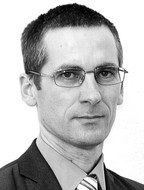Success factors of Russian national team competitive performance in 2016 World Futsal Championship
Фотографии:
ˑ:
PhD A.V. Goferberg1
Associate Professor A.G. Polivaev1
1Tyumen State University, P.P. Ershov Ishim Pedagogical Institute (branch), Ishim
Every competitive accomplishment in competitive team sports is traditionally analysed by the sport researchers and coaches striving to find or clarify the key factors of influence on the competitive success. However, there are too many of such factors in modern team sports on the whole and futsal in particular, and they still remain underexplored in the latter in fact.
Objective of the study was to find and analyse the success factors of the Russian national team competitive performance in the 2016 World Futsal Championship including the key technical and tactical actions (TTA) in the teamwork versus that in the 2016 European Championship. The study data showed meaningful differences in the team kicks on goal that were interpreted as pivotal for success of the Russian national team in the 2016 World Futsal Championship.
Keywords: futsal, competitive performance, success factors, 2016 World Futsal Championship in Columbia.
References
- Aytkulov S.A. Metodika tekhniko-takticheskoy podgotovki v mini-futbole. Ucheb posobie dlya stud. fakultetov fizkultury ped. vuzov [Technique of technical and tactical training in futsal. Textbook for physical education faculty students in ped. univesities]. Chelyabinsk: ChSU publ., 2009, 88 p.
- Golovkov V.V. Faktory, obespechivayuschie effektivnost sorevnovatelnoy deyatelnosti kvalifitsirovannykh sportsmenov v mini-futbole. Avtoref. dis. kand. ped. nauk [Factors to define efficiency of competitive performance of skilled futsal players. PhD diss. abstract]. St. Petersburg, 2002, 24 p.
- Ilyichev O.P. Otsenka dvigatelnoy deyatelnosti futbolistov v sorevnovanii i trenirovke [Evaluation of footballers' competitive and training motor activity]. Problemy vysshego sportivnogo masterstva [Problems of elite sportsmanship]. Moscow: B Sh Sh K publ., 1969, pp. 230-236.
- Kornev V.G., Miroshnikov I.P. Analiz tekhniko-takticheskikh deystviy v mini-futbole studencheskoy sportivnoy komandy [Study of technical and tactical actions of academic futsal team]. Mater. mezhdunar. nauch.-prakt. konf. "Innovatsii v nauke, obrazovanii i biznese - osnova effektivnogo razvitiya APK" [Proc. Intern. res.-pract. conf. "Innovations in science, education and business - basis for effective development of agro-industrial complex"]. In 4 vol., 2011, pp. 46-48.
- Petko S.N. Struktura sorevnovatelnoy deyatelnosti kak osnova postroeniya trenirovki v mini-futbole [Structure of competitive activity as basis for futsal training design]. Teoriya i praktika fiz. kultury, 2008, no. 8, P. 59.
- Polivaev A.G. Analiz pokazateley sorevnovatelnoy deyatelnosti mini-futbolistov na chempionate Evropy na osnove raschete koeffitsienta poleznosti igroka (KPI) [Futsal European championship: players' competitive performance rating analysis based on players' contribution rates (PCR)]. Teoriya i praktika fiz. kultury, 2016, no. 9, pp. 75-77.
- Chempionat mira po futzalu-2016. Statistika. Ofitsialny sayt FIFA.com [Futsal World Cup-2016. Statistics. Official website FIFA.com]. Available at: http://www.fifa.com/futsalworldcup/statistics/index.html (data obrascheniya: 09.02.2017).
- Shamardin V.N. Zavisimost rezultata igry ot struktury tekhniko-takticheskoy i fizicheskoy podgotovlennosti futbolnoy komandy vysshey kvalifikatsii [Ratio of game result and structure of technical and tactical and physical fitness indices of elite football team]. Slobozhanskiy naukovo-sportivniy Visnik. Kharkov, 2011, no. 2, pp. 66-70.



 Журнал "THEORY AND PRACTICE
Журнал "THEORY AND PRACTICE